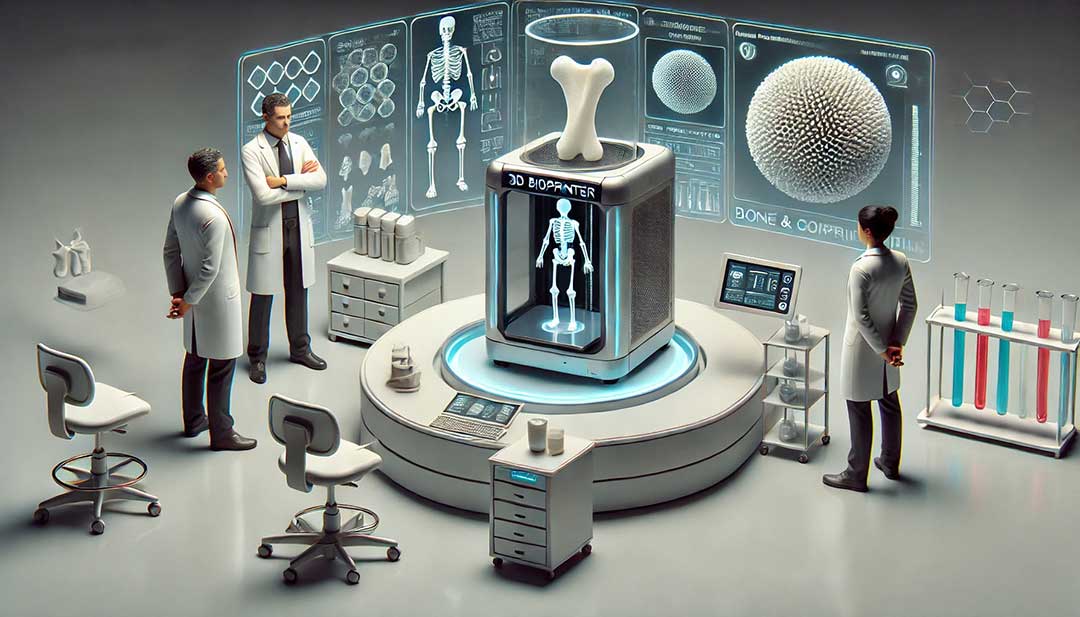
InCArt-3D; Bioink Innovation for Precision 3D Bioprinting in Bone and Cartilage Regeneration.
Consortium Partners
SBMC, BIO INX®
Project Background
InCart-3D addresses a critical need in regenerative medicine by developing specialized bioinks designed for 3D bioprinting applications focused on bone and cartilage repair. Current treatments for osteochondral defects—caused by injuries or degenerative conditions like osteoarthritis—often lack the precision and durability needed to restore joint functionality and alleviate pain effectively. By focusing on advanced bioinks that mimic the unique properties of bone and cartilage tissue, InCart-3D seeks to improve therapeutic outcomes and enhance patient quality of life.
Project Objective
The main goal of InCart-3D is to develop bioinks that support 3D bioprinting of highly functional, biocompatible implants for bone and cartilage regeneration. These bioinks will be engineered to support cell viability, promote tissue integration, and replicate the structural properties required for effective joint repair, providing a foundation for durable, cost-effective solutions in orthopedic healthcare.
BIO INX will leverage its expertise to develop bioinks in a standardized, reproducible, and high-quality manner, while SBMC will concentrate on the biological evaluation of the newly developed materials and printed constructs.
Innovation
The project leverages digital light processing (DLP) technology, enabling the precise layering and structural fidelity needed for complex bone and cartilage constructs. InCart-3D focuses on creating bioinks that align with the physical and biochemical environment of natural tissues, paving the way for more resilient and compatible implants. This technological approach aims to raise the standard for bioinks in tissue engineering, opening doors for novel applications in regenerative medicine.
Intended Application
InCart-3D’s bioinks are specifically tailored for the 3D bioprinting of implants intended to replace damaged bone and cartilage in joint regions. By matching the natural tissue properties, these bioinks allow to produce personalized, sustainable implants that reduce healing time, improve mobility, and offer lasting pain relief for patients with joint injuries and degenerative diseases.
Expected Impact
InCart-3D has the potential to transform the treatment landscape for osteochondral defects and joint degeneration by providing bioinks that deliver on durability and integration. This project reinforces the Netherlands and Belgium’s position at the forefront of regenerative medicine, while advancing global efforts in personalized healthcare through 3D bioprinting technology.
Funding
The project is funded by a €240,000 Interreg CrossRoads grant.
Project Duration
Two years.




